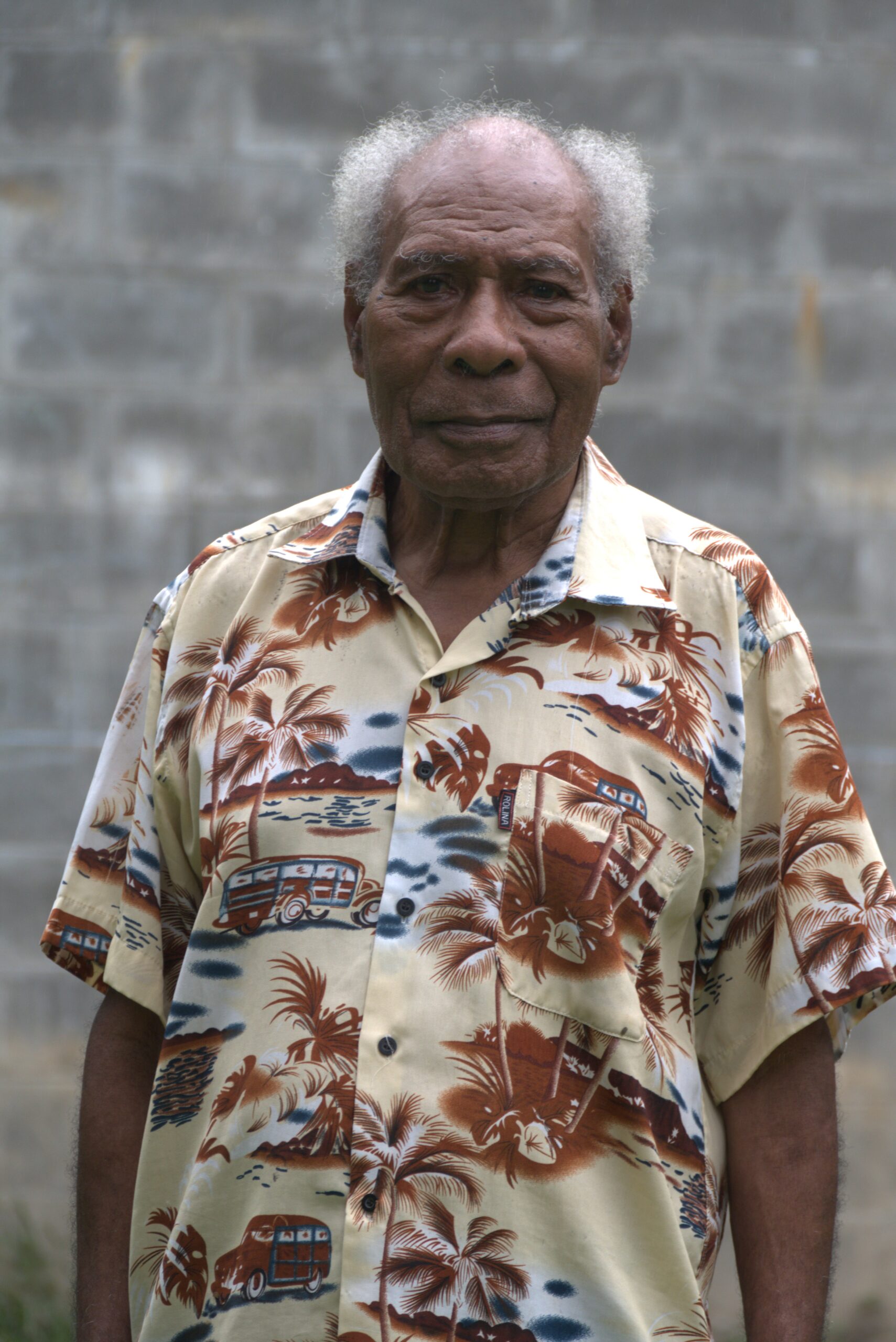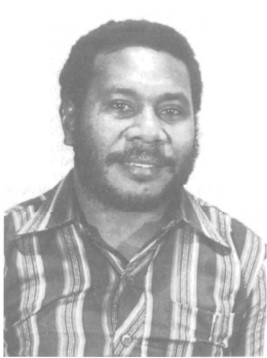Sakey Ronuc Remains Committed to Serving God’s Church

At the age of 76, the first indigenous Lutheran Education Secretary, Mr. Sakey Ronuc, remains steadfast in his Christian duty, serving God in whatever ways he can.
Retiring in 2003 as Education Secretary for the Evangelical Lutheran Church of Papua New Guinea (ELCPNG), Mr. Ronuc now resides in his village of Suqang, beside the famous Mape River in the Finschhafen District of Morobe Province.
Despite his age, Mr. Ronuc remains an active, vocal, and resourceful person who continues to serve as an adviser to the Suqang Congregation, Quembung Circuit, and ELC Kote District, as well as a board member of Suqang Primary School.
Born on October 10, 1946, at Hocpochondong in the mountains of Finschhafen, Mr. Ronuc moved with his parents to Suqang at the age of five so they could be closer to the Lutheran mission stations and attend fellowships to hear the Word of God.
He vividly recalls his father’s involvement in the early mission evangelization of Finschhafen. His father had seen a mission school in Wareo, further up in the mountains, and wanted a similar school established for the Mape people. He approached the missionaries and successfully brought the school down to Suqang, which became Suqang Primary School, still operating today since its establishment in 1952.
“I started my education at the age of nine, doing Grade One in 1955 and Grade Two in 1956 at Suqang Primary School.
From 1957 to 1960, I did Grades Three to Six at Helsebach and passed my lower-level examination. I was selected to Bumayong Lutheran Secondary School to continue Grade Seven in 1961 and completed Grade Ten in 1964,” Mr. Ronuc said.

In 1965, he was selected to undertake teacher training at Balob Teachers College, completing the “C Course” (a higher-level teaching program) in 1967. After graduating, ELCPNG posted him to teach at Prenokwa Primary School in Kundiawa, Simbu Province, from 1968 to 1969. He later served at Kimap Lutheran Primary School in Kerowagi (1970–1971) before returning to Prenokwa in 1972.
During preparations for national independence, the government sent top-performing school managers for headteacher training at Wunakanau Teachers College in East New Britain Province, and Mr. Ronuc was among those selected.
After completing the training, he resumed teaching for six months before joining ELCPNG in 1973 as a Lutheran Education Officer, later serving 13 years as Education Secretary, overseeing all Lutheran agency schools across the country. In 1975, he attended Lutheran Teachers College in Adelaide, undertaking administrative and management studies.
Mr. Ronuc witnessed the transition of the colonial education system from the church’s vernacular-based instruction in Kote and Yabem languages to the unified national education system in English. He also observed how the Church filled the gaps left by the government during the independence transition and played a key role as the first indigenous Lutheran Education Secretary.
“In 1986, I was transferred from the Education Department to the Evangelism Department and placed in charge of the Congregational Life Office, one of the major offices under Evangelism,” Mr. Ronuc said.
While working in Evangelism, he identified a pressing need to teach children God’s Word at an early age within congregational schools. He engaged with the Lutheran World Federation, which agreed to help improve the work of women, youth, and Sunday School programs. A seminar was held in 1978 at the SIL Campus in Kainantu, attended by 70 participants from both ELCPNG and the Gutnius Lutheran Church, including missionaries, teachers, and lay leaders.
“We found that missionaries working in congregations had no standard program for children. They taught whatever they knew or wanted to share. During the seminar, we developed a standard curriculum focusing on teaching children God’s Word in the Bible,” he said.
This led to the creation of the “Was long Sipsip” (Word of the Shepherd) program. With missionary input, nine books were produced for both Sunday School teachers and students, covering ages 4–12. Additional Bible study materials for women were developed under the Women’s Program, recognizing the vital role mothers play in nurturing families spiritually and morally.
Mr. Ronuc emphasized that God blesses families with children and it is their duty to guide them spiritually until they are ready for Sunday School at around four years old. By 13, children can understand God’s Word more deeply and, through confirmation classes, become young disciples of Christ.
He explained that the Church developed programs for all stages—Sunday School, youth, women, stewardship, mission work, and the Rainbow Program—to help nurture faith and moral growth.
Mr. Ronuc commended ELCPNG’s long journey, built on the unwavering support, dedication, and sacrifices of Lutheran missionaries during the evangelization of Papua New Guinea.
“Whatever programs are initiated, materials produced, and resources committed must be fully utilized and strengthened,” he said. “Sacrifices were made to ensure God’s Word reached multitudes across PNG. The Church must maintain its mission of evangelism and ensure God’s work is supported.”
He urged the National Office and program coordinators to continue developing and implementing programs that meet the needs of the people.
Mr. Ronuc also highlighted the lack of training for laymen (hetman), noting that while pastors, evangelists, women, and youth workers receive training, laymen—who often lead services when pastors are away—need more structured training programs.
He said the Rainbow Program, approved by the government for use in both government and church-run schools, remains a powerful tool for youth spiritual education. Teachers can adapt its materials for students of all ages.
“Many young people today face marriage and family issues because they were not spiritually grounded in their youth,” he said. “Many women in remote areas are faithful church members who strongly support church work but still lack training and empowerment opportunities.”
Mr. Ronuc concluded by calling on national church executives and district leaders to refocus efforts on training and capacity building for pastors, evangelists, laymen, women, youth leaders, and Sunday School teachers.
“These are the leaders mandated by their congregations and they are with the people every day. They organize, lead, and participate in church activities, so they must be equipped with the knowledge, skills, and resources to strengthen and expand God’s kingdom,” he said.
He added that God’s Word is missing in many family units, and to see it manifest in people’s lives, it must be preached in a way that helps people appreciate God’s goodness and respond with gratitude through faithful giving and service.


